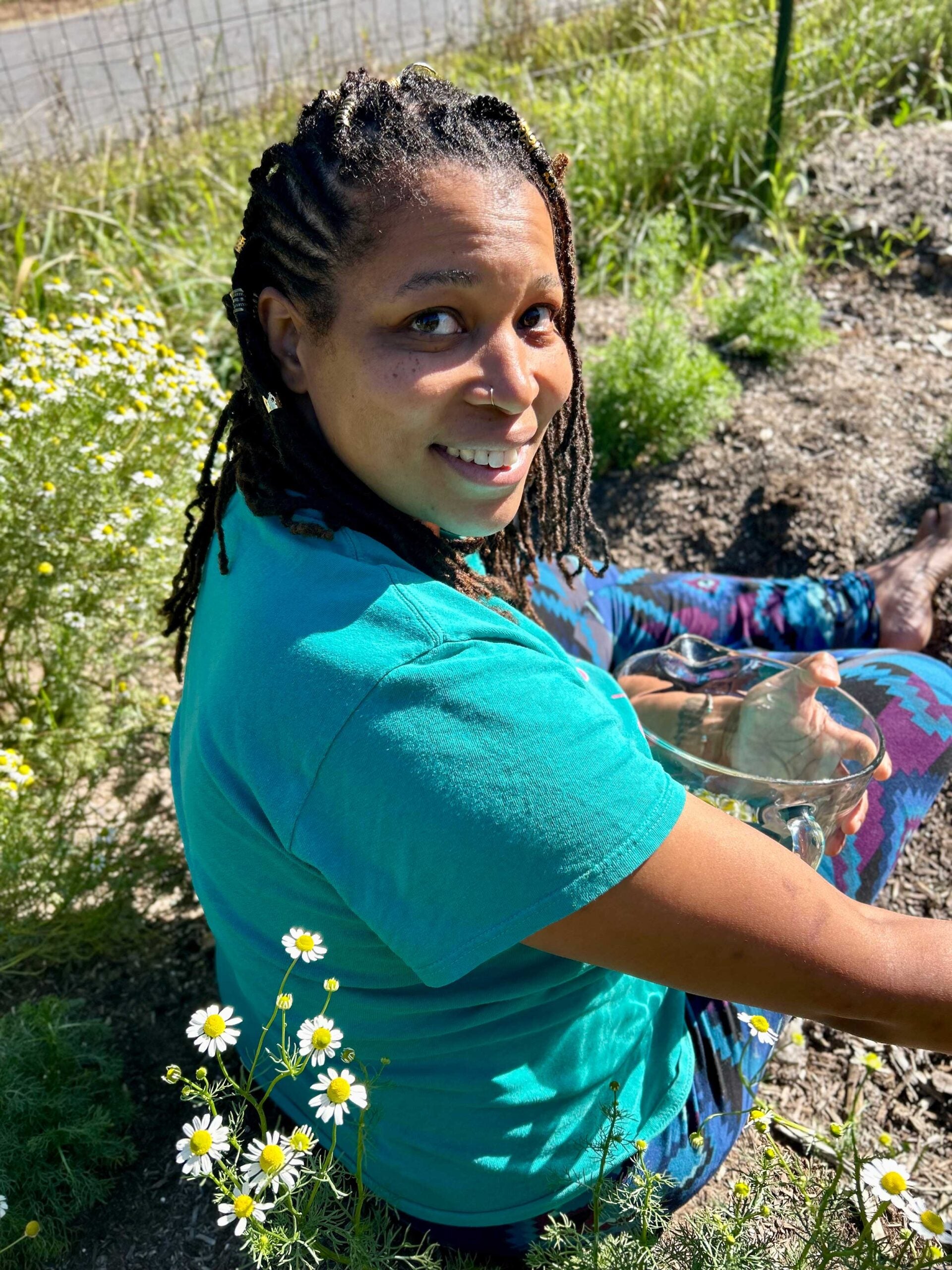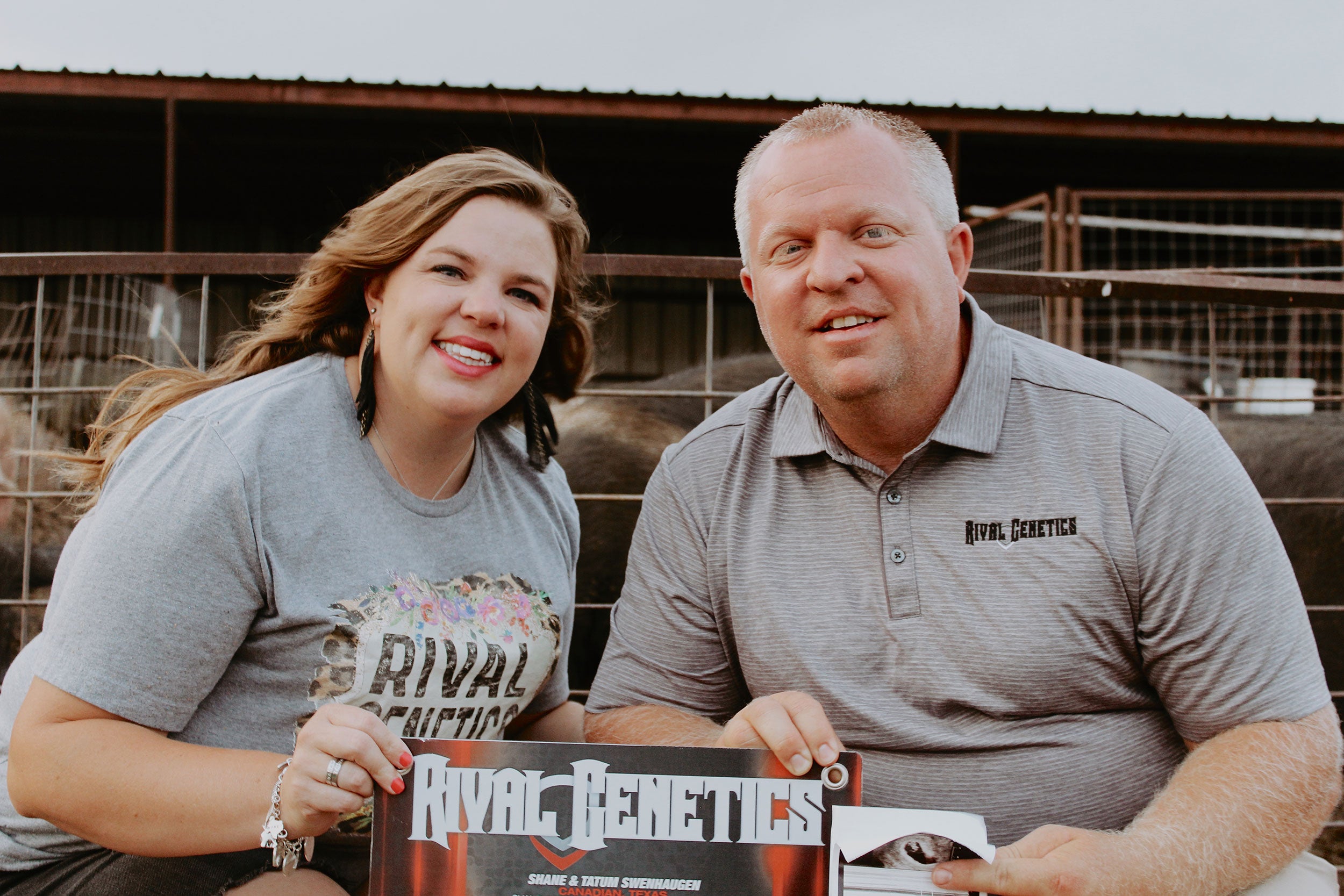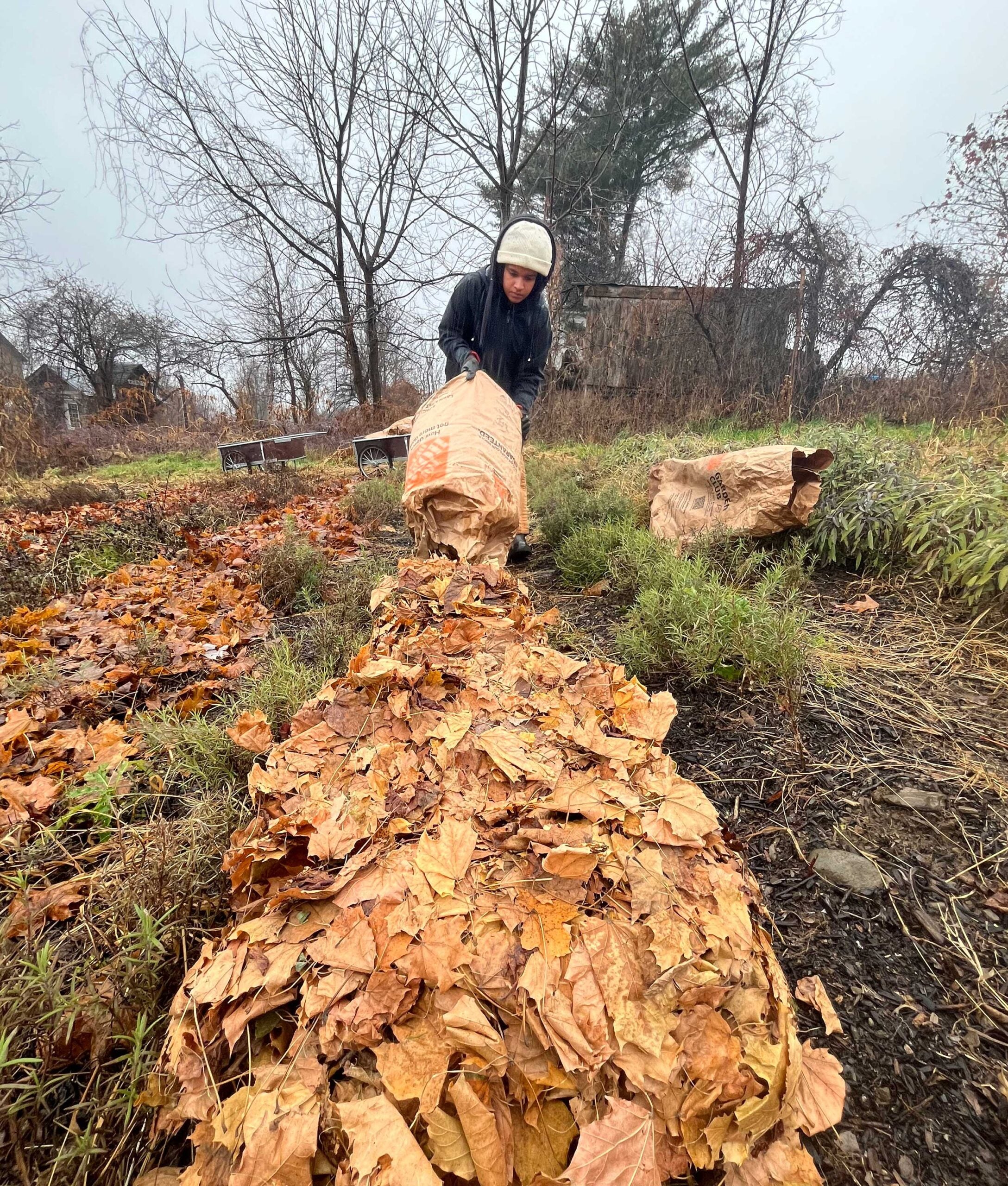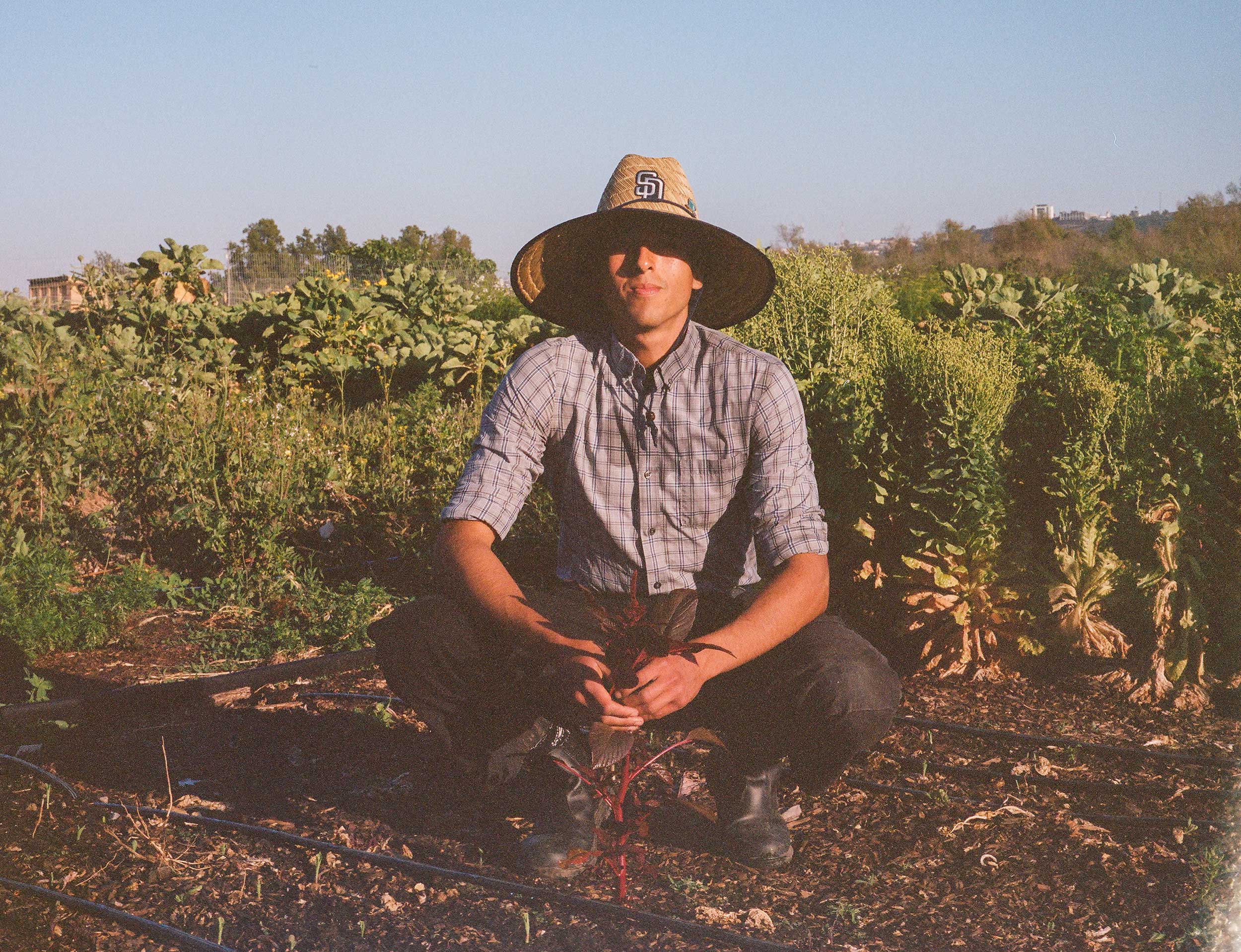How The Brighter Future Fund supports farmland viability, access, and permanence while encouraging regenerative agricultural practices.
Farming in America has always required resilience, resourcefulness, and heart. For many farmers, especially those from underrepresented groups, finding the resources to grow and sustain their operations can feel like an uphill battle.
That’s where American Farmland Trust’s Brighter Future Fund steps in. Providing millions of dollars in grants to farmers and ranchers across the U.S., the Brighter Future Fund helps those identifying as BIPOC, LGBTQ+, female, or beginning tackle challenges, adopt sustainable practices, and build stronger connections within their communities.In 2024 alone, the fund awarded $700,000 to 139 farmers.
Here are the stories of four inspiring awardees, whose unique journeys show how these grants are making an impact where it matters most:
Shonda Gaylord is the driving force behind Mountain Echoes Farm, a 19-acre herb, vegetable, and flower operation in rural West Virginia. She has dedicated herself to sustainable farming practices, food sovereignty, and generational land stewardship alongside two partners.
The farm’s journey began when Shonda relocated from Washington, D.C. to the West Virginia countryside, inheriting a farm in Hardy County. To uphold this designation, she and her team initially focused on raising free-range chickens and harvesting hay. Over time, their efforts expanded to include pollinator gardens, contour swales (shallow ditches) for water conservation, and value-added herbal products.
“As new farmers, grants like the Brighter Future Fund help ensure our land liberation and stewardship efforts can thrive,” Gaylord said.

Mountain Echoes Farm is the only Black, women-led farm of its kind in Hardy County, known as one of West Virginia’s main poultry counties. The farm also hosts The Mountain Women Collective, an Afro-Indigenous community serving local families with time-honored ancient practices.
Shonda plans to use the Brighter Future Fund grant to remodel a vintage camper into an honor-system farm stand. This innovative project will increase the farm’s visibility, build community, and reduce waste while showcasing the collective’s herbal wellness products.
Life took a devastating turn for the Swenhaugen family earlier this year when the Smokehouse Creek Fire destroyed 80% of their livestock farm, Rival Genetics.
Located in Canadian, Texas, the family-run farm specializes in raising show pigs and mentoring youth through 4-H and FFA programs. Despite the loss, Tatum Swenhaugen and her husband have refused to give up.
Since the fire, they’ve worked tirelessly to keep their operation afloat, spreading their pigs across four locations in three different counties just to stay in business.
“These funds will be a huge blessing to our family after losing the majority of our business in the fire,” Tatum said.

The grant will help them rebuild critical infrastructure like barns and farrowing houses, so they can bring their animals back to one location and return to their day-to-day work.
For Tatum, this isn’t just about rebuilding a business, it’s about preserving the dream she and her husband have built together and continuing to guide the next generation of young agricultural leaders.
Kathedy Lopez, the founder of Sovereign Herbs, knows firsthand how farming can be a challenge. But for her, farming goes beyond growing food — it’s about creating a space for connection and healing in her community. Lopez produces culturally significant herbs such as cilantro, epazote, and marjoram, which serve Black and Latinx communities in New York’s Hudson Valley.
“This fund is helping our farm deepen sustainable agricultural practices and grow more culturally relevant herbs for our community,” Lopez said.
Lopez’s journey to farming hasn’t been easy. After years of working on farms that often failed to acknowledge Black contributions to agriculture, she found her place within a broader BIPOC farming community.

That sense of belonging inspired her to start her own operation, using regenerative practices to preserve soil health and honor the land.
Her Brighter Future Fund grant will allow Lopez to invest in vital tools and equipment that will support her farm’s sustainability. She plans to purchase a flail mower, landscape fabric, cover crop seeds, and compost. The flail mower will help minimize soil compaction while breaking down plant material into biomass, which is essential for enriching the soil.
Additionally, the landscape fabric will allow her to suppress weeds without heavy machinery, reducing labor and improving efficiency. These updates will enable Lopez to grow more herbs and expand her reach within the community.
For Lopez, farming is about more than the land. It’s about empowering others, providing access to culturally meaningful food, and applying sustainable practices that will last for generations.
Javier Flores is a beginning farmer with big dreams. From his quarter-acre plot in the Tijuana River Valley Community Garden, Javier leads Tijuana River Valley Seed, a California-based initiative dedicated to growing high-quality seeds and produce while making urban farming more accessible.
Growing up just a block away from the garden, he had no idea such opportunities existed so close to home.
Now, he’s committed to using his farm to share knowledge, promote regenerative practices, and provide his community with fresh, locally grown food.
“The funding that American Farmland Trust has granted will allow us to continue pushing the initiative of local seed production forward,” Javier said.

With the grant, Javier plans to build a greenhouse that will allow him to start seeds earlier and extend his growing seasons. The greenhouse will also include drip irrigation and water catchment systems, making resource use more efficient and environmentally friendly.
In addition to the greenhouse, Javier will invest in tools to improve both educational and operational activities on the farm. These tools include seed starting trays, peat moss, coco coir, and wheelbarrows to help streamline harvesting.
Javier also plans to purchase seed processing equipment, such as sifters and drying racks, which will improve the quality and efficiency of his seed production. By creating this infrastructure, he will not only grow more produce and seeds but also expand his farm’s role as a hub for urban farming education.
Tijuana River Valley Seed will continue to serve as a resource for aspiring farmers while strengthening food security in the local community through sustainable practices.
Land access and legacies
The Brighter Future Fund is more than a grant program: it’s a lifeline for farmers working to build a sustainable, equitable future. And it’s important, as nearly 300 million acres of agricultural land are expected to change hands in the next 15 years.
Through their stories, Gaylord, Swenhaugen, Lopez, and Flores remind us that farming is as challenging as it is rewarding, with small farmers often facing obstacles that can threaten their very survival. For these farmers, the support provided by the Brighter Future Fund can mean the difference between success and failure, offering them the tools and resources they need to overcome hardships, sustain their operations.
Thanks to American Farmland Trust, these farmers, and many others, are proving that with the right support, they can overcome obstacles, grow their operations, and keep their communities thriving.
This article was published on behalf of American Farmland Trust.
David Salazar serves as the 2024 American Farmland Trust Agriculture Communications Intern at AGDAILY, with a focus on helping to amplify diversity and minority voices in agriculture. David is originally from King City, California, and attended the University of California, Fresno, as a first-generation college student. He received a bachelor’s degree in viticulture and enology and has worked in California’s premier wine producing regions.




